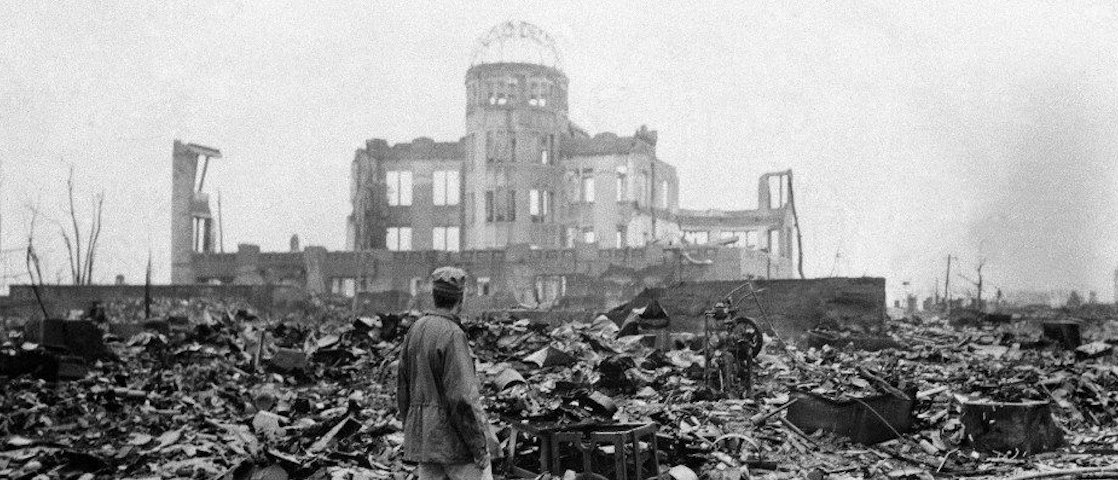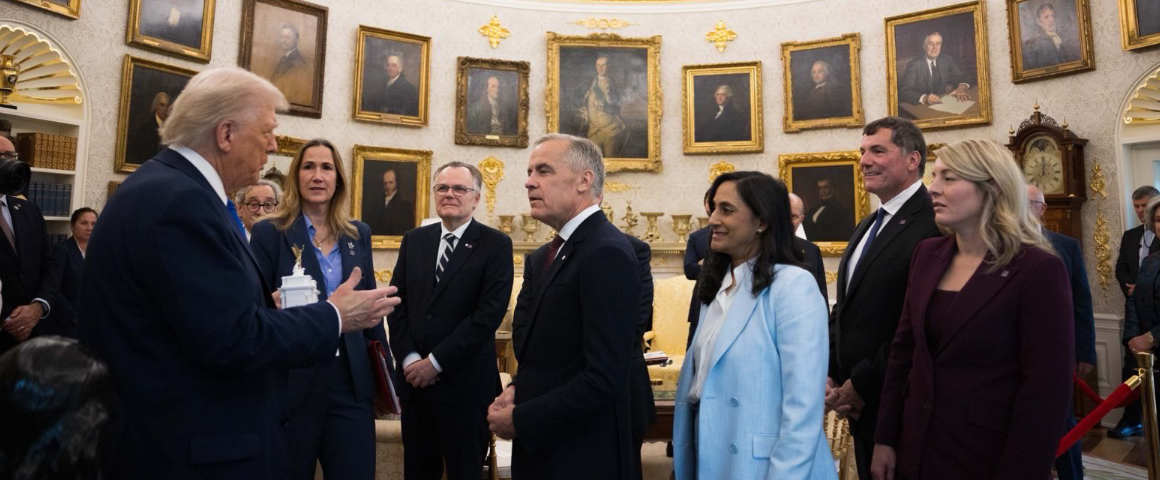Does winning World War II and the Cold War mean never having to say you’re sorry? Is there any reason for the United States to apologize to Japan for atomizing Hiroshima and Nagasaki?
Defenders of the US action counter that the bomb actually saved lives: it ended the war sooner and obviated the need for a land invasion. Estimates of the hypothetical saved-body count, however, which range from 20,000 to 1.2 million, owe more to political agendas than to objective projections.
But defining the issue as a choice between the A-bomb and a land invasion is an irrelevant and wholly false dichotomy. By 1945, Japan’s entire military and industrial machine was grinding to a halt as the resources needed to wage war were all but eradicated. The navy and air force had been destroyed ship by ship, plane by plane, with no possibility of replacement. When, in the spring of 1945, the island nation’s lifeline to oil was severed, the war was over except for the fighting. By June, Gen. Curtis LeMay, in charge of the air attacks, was complaining that after months of terrible firebombing, there was nothing left of Japanese cities for his bombers but “garbage can targets.” By July, US planes could fly over Japan without resistance and bomb as much and as long as they pleased. Japan could no longer defend itself.
Rejected overtures
After the war, the world learned what US leaders had known by early 1945: Japan was militarily defeated long before Hiroshima; it had been trying for months, if not for years, to surrender; and the US had consistently rebuffed these overtures. A May 5 cable, intercepted and decoded by the US, dispelled any possible doubt that the Japanese were eager to sue for peace. Sent to Berlin by the German ambassador in Tokyo, after he talked to a ranking Japanese naval officer, it read: “Since the situation is clearly recognized to be hopeless, large sections of the Japanese armed forces would not regard with disfavor an American request for capitulation even if the terms were hard.”
As far as is known, Washington did nothing to pursue this opening. Later that month, Secretary of War Henry L. Stimson almost capriciously dismissed three separate high-level recommendations from within the administration to activate peace negotiations. The proposals advocated signaling Japan that the US was willing to consider the all-important retention of the emperor system; i.e., the US would not insist upon unconditional surrender.
Stimson, like other high US officials, did not really care in principle whether or not the emperor was retained. The term “unconditional surrender” was always a propaganda measure; wars are always ended with some kind of conditions. To some extent the insistence was a domestic consideration not wanting to appear to appease the Japanese. More important, however, it reflected a desire that the Japanese not surrender before the bomb could be used. One of the few people who had been aware of the Manhattan Project from the beginning, Stimson had come to think of it as his bomb, “my secret,” as he called it in his diary.
On June 6, he told President Truman he was fearful that before the A-bombs were ready to be delivered, the Air Force would have Japan so bombed out that the new weapon would not have a fair background to show its strength.
In his later memoirs, Stimson admitted that no effort was made, and none was seriously considered, to achieve surrender merely in order not to have to use the bomb.
And that effort could have been minimal. In July, before the leaders of the US, Great Britain, and the Soviet Union met at Potsdam, the Japanese government sent several radio messages to its ambassador, Naotake Sato, in Moscow, asking him to request Soviet help in mediating a peace settlement. “His Majesty is extremely anxious to terminate the war as soon as possible,” said one communication. Should, however, the United States and Great Britain insist on unconditional surrender, Japan would be forced to fight to the bitter end. On July 25, while the Potsdam meeting was taking place, Japan instructed Sato to keep meeting with Russian Foreign Minister Molotov “to impress the Russians with the sincerity of our desire to end the war [and] have them understand that we are trying to end hostilities by asking for very reasonable terms in order to secure and maintain our national existence and honor” (a reference to retention of the emperor).
Having broken the Japanese code years earlier, Washington did not have to wait to be informed by the Soviets of these peace overtures; it knew immediately and did nothing. Indeed, the National Archives in Washington contains US government documents reporting similarly ill-fated Japanese peace overtures as far back as 1943.
Thus, it was with full knowledge that Japan was frantically trying to end the war, that President Truman and his hardline Secretary of State, James Byrnes, included the term “unconditional surrender” in the July 26 Potsdam Declaration. This final warning and expression of surrender terms to Japan was in any case a charade. The day before it was issued, Harry Truman had approved the order to release a 15-kiloton atomic bomb over the city of Hiroshima.
Political bombshell
Many US military officials were less than enthusiastic about the demand for unconditional surrender or use of the atomic bomb. At the time of Potsdam, Gen. Hap Arnold asserted that conventional bombing could end the war. Adm. Ernest King believed a naval blockade alone would starve the Japanese into submission. Gen. Douglas MacArthur, convinced that retaining the emperor was vital to an orderly transition to peace, was appalled at the demand for unconditional surrender. Adm. William Leahy concurred. Refusal to keep the emperor “would result only in making the Japanese desperate and thereby increase our casualty lists,” he argued, adding that a nearly defeated Japan might stop fighting if unconditional surrender were dropped as a demand. At a loss for a military explanation for use of the bomb, Leahy believed that the decision was clearly a political one, reached perhaps because of the vast sums that had been spent on the project.
Finally, we have Gen. Dwight Eisenhower’s account of a conversation with Stimson in which he told the secretary of war that: “Japan was already defeated and that dropping the bomb was completely unnecessary. … I thought our country should avoid shocking world opinion by the use of a weapon whose employment was, I thought, no longer mandatory as a measure to save American lives. It was my belief that Japan was, at that very moment, seeking some way to surrender with a minimum loss of face. The secretary was deeply perturbed by my attitude, almost angrily refuting the reasons I gave for my quick conclusions.”
If, as appears to be the case, the US decision to drop the A-bombs was based on neither the pursuit of the earliest possible peace nor it being the only way to avoid a land invasion, we must look elsewhere for the explanation. It has been asserted that dropping the atomic bombs was not so much the last military act of the Second World War as the first act of the Cold War. Although Japan was targeted, the weapons were aimed straight to the red heart of the USSR. For three-quarters of a century, the determining element of US foreign policy, virtually its sine qua non, has been the communist factor. World War II and a battlefield alliance with the USSR did not bring about an ideological change in the anti-communists who owned and ran America. It merely provided a partial breather in a struggle that had begun with the US invasion of Russia in 1918.
It is hardly surprising then, that 25 years later, as the Soviets were sustaining the highest casualties of any nation in World War II, the US systematically kept them in the dark about the A-bomb project while sharing information with the British. According to Manhattan Project scientist Leo Szilard, Secretary of State Byrnes had said that the bomb’s biggest benefit was not its effect on Japan but its power to make Russia more manageable in Europe.
Bomb-slinging diplomats
Churchill, who had known about the weapon before Truman, applauded and understood its use: “Here then was a speedy end to the Second World War,” he said about the bomb, and added, thinking of Russian advances into Europe, “and perhaps to much else besides. … We now had something in our hands which would redress the balance with the Russians.”
Referring to the immediate aftermath of Nagasaki, Stimson wrote: “In the State Department there developed a tendency to think of the bomb as a diplomatic weapon. Outraged by constant evidence of Russian perfidy, some of the men in charge of foreign policy were eager to carry the bomb for a while as their ace-in-the-hole. … American statesmen were eager for their country to browbeat the Russians with the bomb held rather ostentatiously on our hip.”
This policy, which came to be known as atomic diplomacy, did not, of course, spring forth full-grown on the day after Nagasaki. “The psychological effect on Stalin [of the bombs] was twofold,” noted historian Charles L. Mee, Jr. “The Americans had not only used a doomsday machine; they had used it when, as Stalin knew, it was not militarily necessary. It was this last chilling fact that doubtless made the greatest impression on the Russians.”
Killing Nagasaki
After the Enola Gay released its cargo on Hiroshima on August 6, common sense – common decency wouldn’t apply here – would have dictated a pause long enough to allow Japanese officials to travel to the city, confirm the extent of the destruction, and respond before the US dropped a second bomb. At 11 o’clock in the morning of August 9, Prime Minister Kintaro Suzuki addressed the Japanese Cabinet: “Under the present circumstances I have concluded that our only alternative is to accept the Potsdam Proclamation and terminate the war.” Moments later, the second bomb fell on Nagasaki.
Some hundreds of thousands of Japanese civilians died in the two attacks; many more suffered terrible injury and permanent genetic damage. After the war, His Majesty the Emperor still sat on his throne, and the gentlemen who ran the United States had absolutely no problem with this. They never had.
by William Blum
[This article appeared in the August 1995 issue of People’s Voice, marking the 50th anniversary of the bombings of Hiroshima and Nagasaki. It is based on a longer article from CovertAction Quarterly]




